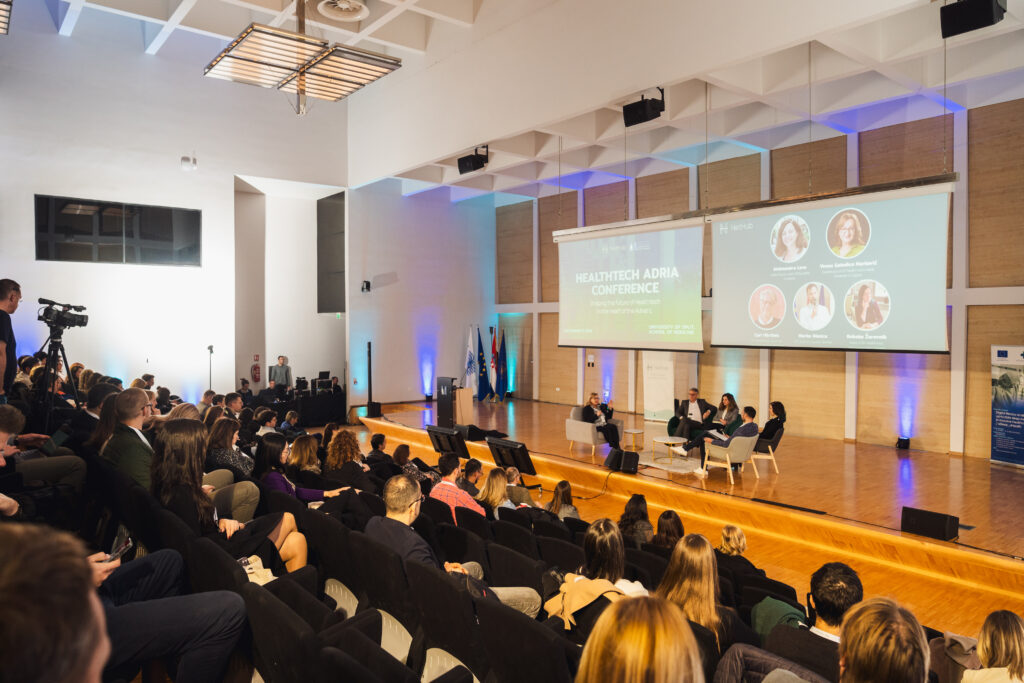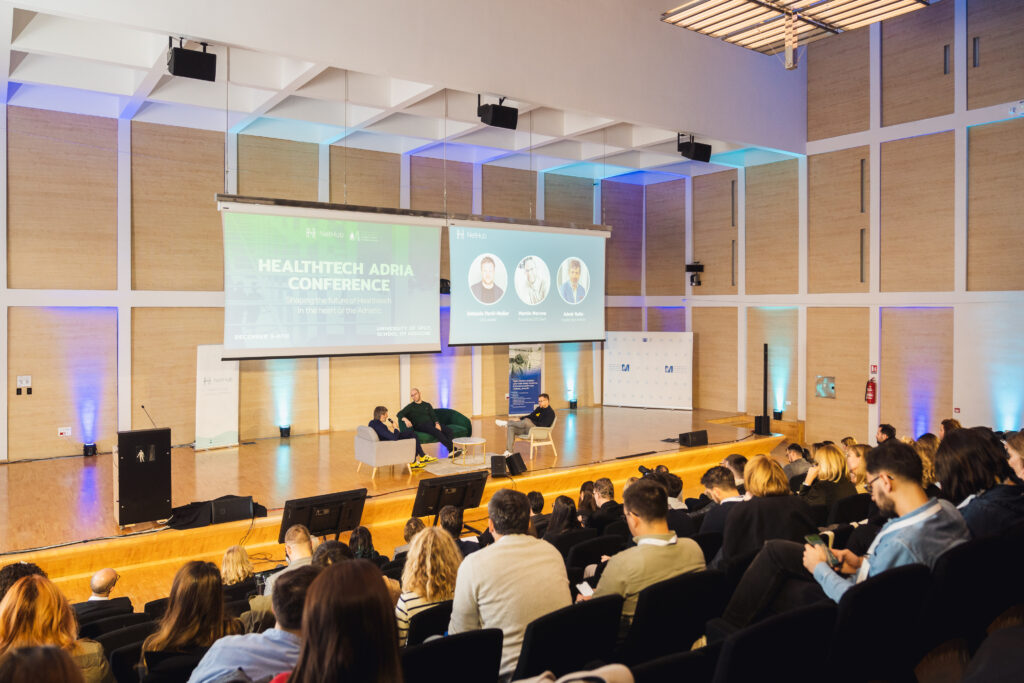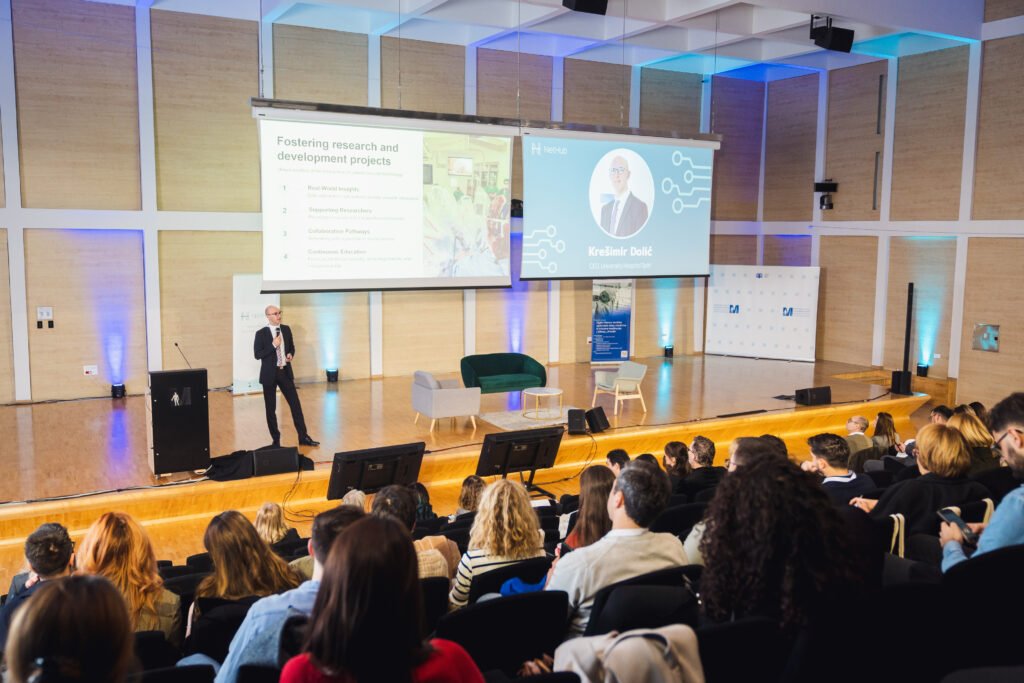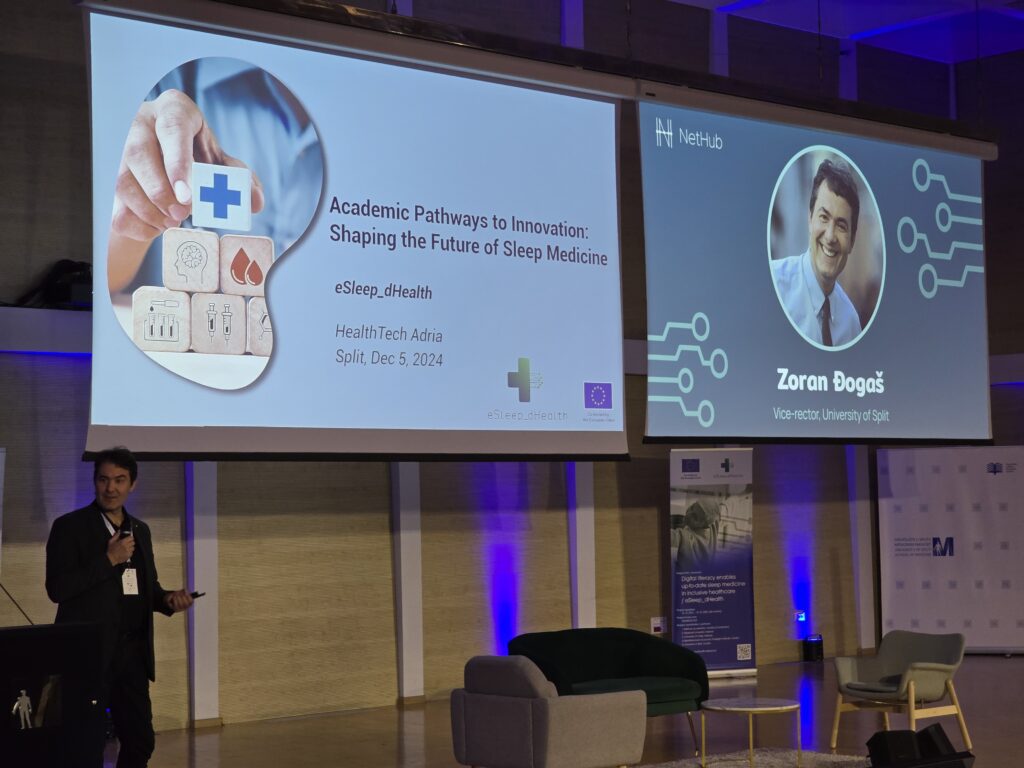The First project conference was successfully held as part of the HealthTech Adria conference, on December 5th at the Amphitheatre of the University of Split, School of Medicine. The event brought together more than 100 participants, including local, regional, and international experts from healthcare, technology, and academia.
The conference featured engaging panel discussions and expert lectures that provided valuable insights into healthcare innovation. In the first panel discussion, Aleksandra Love, Vesna Gabelica Marković, Carl Härtlein, Marko Mimica, and Rebeka Žerovnik explored the importance of connecting key stakeholders in healthcare and technology. The panelists emphasized that building strong regional innovation ecosystems is essential for driving measurable and sustainable progress.
The second panel brought together Antonio Perić-Mažar, Martin Morava, and Admir Kulin, who addressed the underutilized potential of regional software agencies in developing digital health solutions. They highlighted the main challenges, including complex regulatory frameworks, limited cooperation between the healthcare and technology sectors, and the need for increased investment in digitalization.
Participants also had the opportunity to hear from Ivan Biliškov, whose lecture explored the intriguing question of whether artificial intelligence knows us better than we know ourselves. His talk offered thought-provoking insights into the role of AI in the digital transformation of healthcare.
Krešimir Dolić, CEO of the University Hospital Split, shared his perspective on the challenges and opportunities in integrating innovative technologies into healthcare systems. His presentation provided practical insights into bridging the gap between healthcare needs and technological solutions.
A major highlight of the conference was the keynote presentation by Zoran Đogaš, professor and vice-rector at the University of Split. In his lecture titled Why sleep medicine matters?, Đogaš delved into the critical role of sleep medicine in improving public health. He discussed the prevalence of sleep disorders, including sleep apnea, insomnia, and circadian rhythm disturbances, and their significant impact on health outcomes. Đogaš emphasized the link between sleep disorders and conditions such as cardiovascular diseases, type 2 diabetes, depression, and cognitive decline. He highlighted the goals of the eSleep_dHealth project in transforming sleep diagnostics by bringing advanced solutions from hospitals to patients’ homes through participatory healthcare and personalized treatments.
He showcased The Sleep Revolution Project, aimed at transforming current diagnostic methods and moving advanced sleep diagnostics from hospitals into patients’ homes. Building on this foundation, Đogaš presented eSleep_dHealth as a continuation of these efforts, showcasing its focus on interdisciplinary collaboration and practical innovation in digital sleep medicine. He emphasized that eSleep_dHealth not only educates future healthcare innovators through open educational resources but also equips them with the skills to apply academic knowledge to real-world challenges through its incubator model and international learning expeditions. He concluded by inviting students to join the upcoming course, encouraging them to take an active role in shaping the future of sleep medicine and digital health.
The first eSleep_dHealth project conference demonstrated the importance of interdisciplinary collaboration in fostering innovation. By bridging academia, healthcare, and technology, the eSleep_dHealth project aims to address key challenges in digital sleep medicine while empowering students and professionals to create innovative solutions.
The conference served as an inspiring platform for knowledge exchange and collaboration, strengthening the regional innovation ecosystem and paving the way for advancements in healthcare and digital health.









